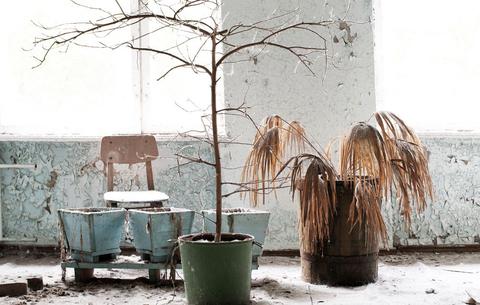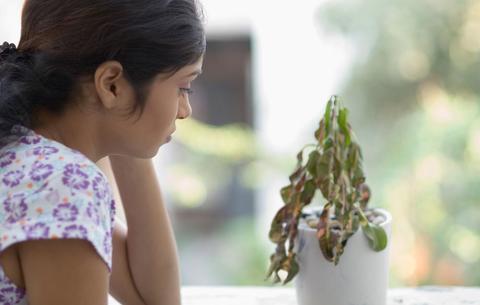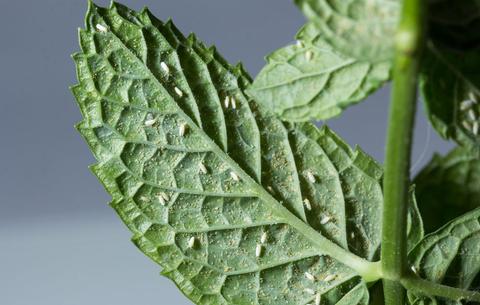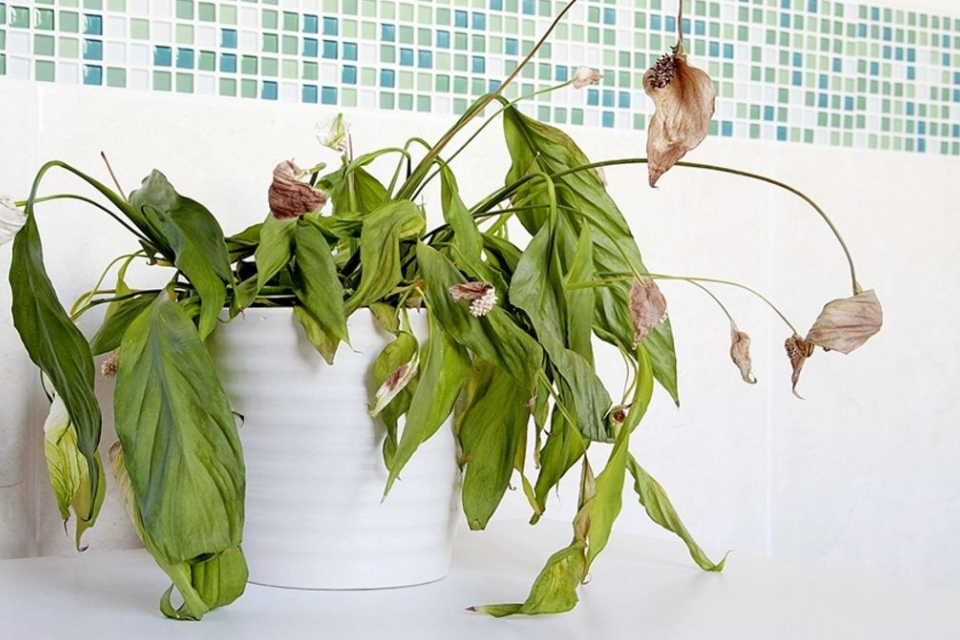Tired of looking at a wall full of wilted, dry plant corpses? Keep your green wall green with this list of common maintenance mistakes, and how to avoid them.
As a society, we spend a large amount of time indoors, in small office spaces, with artificial lighting. To combat the negative effects of these soul-crushing conditions, modern interior design trends are bringing the outdoors inside with striking, decorative living walls.
Green walls, when properly maintained, provide many additional benefits in an office environment. In order to lower their overall cost of ownership however, you’ll need to be aware of (and avoid) these seven common maintenance mistakes:
SEVEN WAYS YOU COULD BE ACCIDENTALLY KILLING YOUR INDOOR PLANTS
1. Choosing the wrong plants
One of the most common (and costly) mistakes you can make when it comes to indoor plants, is choosing the wrong plants for your living wall. Not all plants can survive indoors – and out of those that can, not all are suitable for every space.
It’s advisable to work with a landscaper or interior designer who are very familiar with green walls to ensure that the right plants are chosen for your green wall, not only for aesthetic reasons but for environmental reasons. Indoor plants still require various different living conditions. Most plants that do well indoors, however, share three similar qualities:
They can grow in medium to low lighting
There’s no true substitute for outdoor sunlight, so any plant that requires full sun will suffer indoors (even if they’re getting some rays of sunshine through a window). Plants that prosper indoors require very light sunlight. Read our article, 9 indoor plants that are almost impossible to kill, for some hardy varieties that require very little maintenance, which will lower your overall cost of green wall ownership.
They can survive in dry conditions.
Both people and plants require humidity for good health – something rather scarce in an air-conditioned office. Picking plants which can survive in very dry conditions (like succulents, or plants with thick waxy leaves) will boost your chances of your plants thriving indoors. Additionally, certain plants can actually help boost the humidity levels in your office.
They stay relatively small.
The last thing you need is an aggressive plant which quickly outgrows its container, and takes over your office (or dies from lack of root room).
2. Neglecting your plants

Image source: Organic Life
A healthy green wall requires a regular watering schedule. Unlike their outdoor relatives, indoor plants won’t be getting any rainwater when you forget to water your pots. Brown, crunchy leaves, and dry soil are signs of under-watering your plants. If you’re running the air conditioner or central heating in your office, your plants will most likely require more water than usual.
Choosing a green wall system that can fully automate the watering process, such as the GrowUp system, takes the stress and hassle out of watering. Check the valves, timers, and all other important parts of the mechanism are working correctly, and simply contact us in the instance of any damage.
3. Loving your plants to death

Image source: Organic Life
On the other hand, over-watering or overfeeding your green wall will also kill your plants, causing root rot, mold, and disease. Limp, yellowing leaves, and wet soil are a sure indicator that you’re over-watering your indoor plants.
The GrowUp flood irrigation methodology works well to allow the plants sufficient water while ensuring they never stand with their roots in water. Allowing sufficient times between watering, using the timer, allows the soil to dry and aerate, making for healthy root systems
4. Not having a maintenance plan
While a small home set up is easy to install and maintain, as soon as you graduate to larger scale systems in offices, it becomes quite a task to keep your green wall healthy by yourself. This is not a job for “Jane the receptionist”, or “Bob who arrives early in the mornings”. To keep your indoor wall in tip-top condition (lowering the overall ownership cost), you need a professional to routinely maintain it.
A professional green wall partner will help you to identify plant diseases before they become a problem, swap out any plants that are struggling, keep your soil properly fertilized and moist, monitor lighting conditions, and make sure your living wall stays lush and healthy all year round.
Pruning should be a part of this maintenance plan. Prune your green wall at regular intervals, by removing dying leaves and other unwanted growth. If you have herbs in your green wall, make sure you harvest them as seasons demand. Don’t let them rot or over-grow - it will affect the health of your plants.
5. Treating your indoor plants like they’re outdoors
All plants (even those that do well in low-light conditions) need some light for at least part of the day. If your office is dark, without windows, you need to consider installing artificial lighting that can replace the sunlight.
Apart from lighting, you also need to remember that there’s no rain to wash your plants. Plants, just like your office furniture, are susceptible to collecting dust and need to be given a good wipe down every now and again, to ensure that their leaves are able to absorb enough light to survive.
6. Not fertilizing your plants
When plants are constrained to pots, you need to continuously add nutrients back into the soil. Plants can survive on water alone, but they won’t be as lush and healthy as they could be. Adding nutrients to your watering system is a fast, simple way to ensure that your plants are getting everything they need to thrive.
7. Ignoring the symptoms of pests or disease

Image source: Organic Life
Diseases or infestations, when left to get out of hand, can and will spread like wildfire through your green wall. If you notice any mold, black spots, or tiny insects (like aphids), you should immediately quarantine the infected plants. Once you’ve treated the plants (and are sure they are no longer contagious), you can replace them on your green wall. If the disease is too far advanced, you may still lose the plant, but at least you won’t lose your entire green wall.
Don’t let the maintenance of indoor plants put you off including nature in your office design. Plastic plants might look fine, but you can’t beat the real thing when it comes to all the added benefits a green wall can bring with it.

